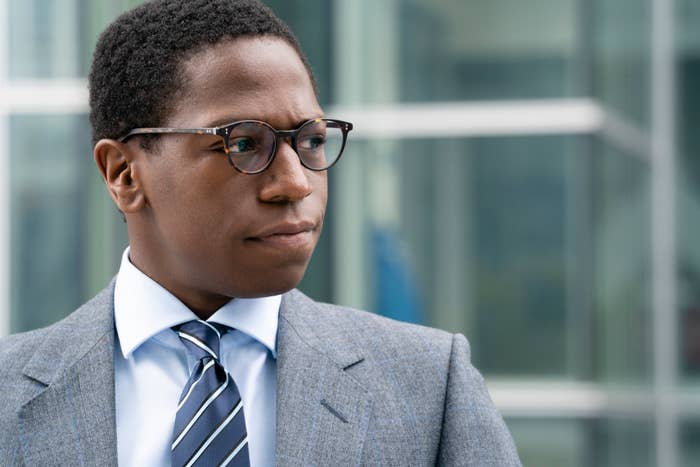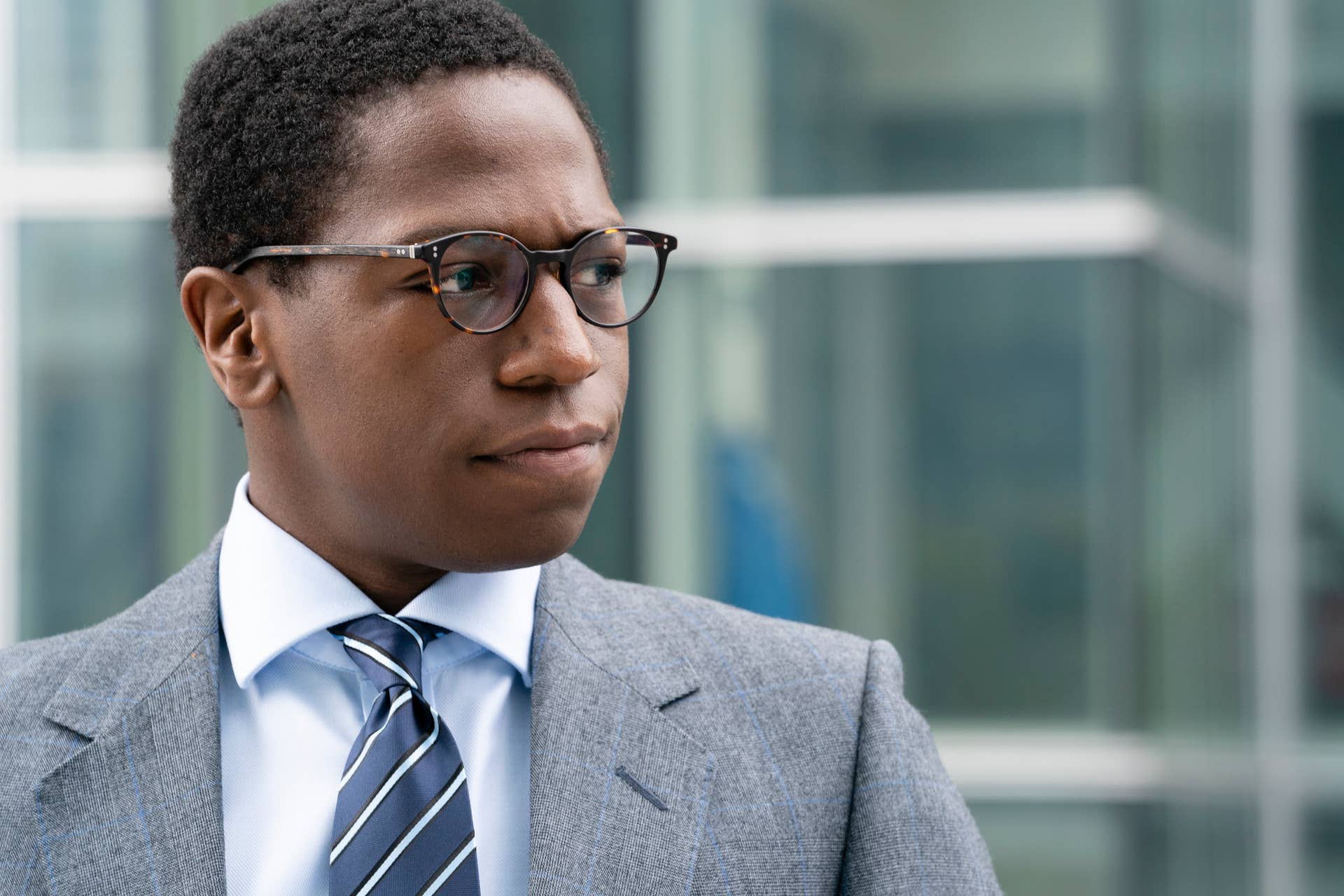
David Jonsson (Deep State) portrays the ambitious, bright, headstrong, and lovestruck Gus Sackey on HBO’s Industry. A complex and layered Black man that we usually don’t get to encounter on television, Gus is a refreshing character that tackles Black masculinity and sexuality that we need to see more of on this medium.
One of Pierpoint & Co.’s newest recruits eyeing a permanent role, Gus is willing to do whatever it takes to secure his future, even at the expense of some key relationships. Complex spoke with David Jonsson about how he prepared for this important role, the importance and impact of his fans seeing his character and so much more!
Gus is multi-layered, flawed and a well-written character. What other roles and real-life life experiences prepared you to portray him?
He's very different from me, so I had to do a lot of research. I've read so much because I think he's so quick; he's always got an answer for everything and I'm not that kind of person.
We don't know very much about Gus outside of those core friendships that we see that he's had from his university days.
We spoke a lot about this. I did because that's the kind of actor I am. I keep a book and I always try and make these connections in where I'm from, where I've come from, what's going on, what I've eaten, all that kind of stuff. I spoke to the writers a lot about this and it was a great conversation.
How challenging was it to get the in-depth backstory on the industry itself?
I'm going to be straight out because it was a full-on challenge. It was running a marathon challenge, I'm still running it. Not only do you have to understand the lingo of what you're saying but you have to understand how these guys move, and they move fast. They pick up the phone, answer this one, they have another person on the line. I can barely reply to texts on time. It's mental. It was something that required a lot of research and a lot of time. And again, the writers—Mickey Down and Konrad Kay—were an incredible source for that. Any question we had we went up to them and said, "Listen, what does this mean?" They would be like, "This is it. That's it." They knew exactly what they were talking about, so that was good. We're still working on it for sure.
Gus has a friend in his flatmate and College buddy, Robert. Now they’re teammates, but Robert is coasting on his privilege. Gus sees that and upstages him in a lot of ways, and looks to be gunning for Robert’s job. Talk about their friendship and what challenges will we see?
That's a completely valid point and I'm so glad that you picked up on that. I spoke to the writers about this as well. Gus went to all these schools, he's worked hard, but it's easy to just go, "Oh look at Gus, he's so entitled." But then you just look at Robert (Harry Lawtey) and you can easily see why he would get somewhere 10 times faster than Gus. It's the same old chestnut, whether you come from nothing or from somewhere high, you've still got to work hard. I was taught that personally. I'm from East London, which is a rural part of London, and that was what my family taught me. What pans out with Gus and Robert is exactly that, we find our way, and underneath that, all is a friendship. I think you find in all relationships or friendships, you have to find a compromise of you accept me for what I am, I accept you for what you are, but let's not act like it's not there.
Another key relationship for Gus is one of the complicated entanglement he’s in with Theo and I find myself upset because he deserves so much more. Talk about this relationship and having this type of representation onscreen.
When I was auditioning, something that was really interesting to me and made me want to do this project was the fact that we’re getting more of this type of representation, which is a wonderful thing. This is one of the first times we’re seeing just how hard it is for a Black gay man working in finance on tv, and I am honored to be playing him. In terms of his relationship with Theo (Will Tudor), I think Gus goes through the phases that everyone does in similar situations. You try and get over it, you try and be a better person, but then you go, "Actually maybe they might change, maybe they might be better. And do you know what? I think they do love me, or they don't." When you're vulnerable it's very hard to put on a jacket and cover-up. I think for me that was like Gus every day to constantly be open.
You brought this up a little bit, but expand on what you hope the cultural impact of really portraying this character at the intersection of so many identities will be moving forward.
I'll be honest with you. Recently I got a message from a stranger in the States who said, "Dude, your work is brilliant! I worked on wall street, I'm a Black gay man, and I've never seen this before on television." And that, for me ... Listen, I'm done, I'm good. I don't need anything else. Occasionally as an actor, you get these small chances to do something that might actually mean something to someone as opposed to just always entertain. I never knew that feeling personally but I hoped I would make that type of impact one day and to get that message confirmed it.
How has the release of this project and working as Gus and pouring yourself into this character helped heal and re-center various parts of your life?
Gus is so different from me so to go somewhere really far away from you and try and live out that experience, somehow it validates your own experience, do you know what I mean? It shows you a part of yourself that you may never have touched. It's been a crazy year, but I think what's been amazing about Industry coming out and people seeing these characters onscreen like Gus, it's connecting us somehow.
What do you hope that audiences take away from the show as a whole?
I do hope, first and foremost, [that] people enjoy it, I hope they get a kick out of it. I think we all need a bit of relief at this time. But what I took away from it is these people, again, they're human and they're all just trying to make a choice that might have a bigger effect on their future, inevitably a positive effect. We're not the judges of what's going to be positive for our lives or someone else's. I hope that people watch it and get a bit of empathy for people who are just trying to be the best selves that they can, whether or not they seem like absolute whatever you want to call them, whatever exclusive or not. I just hope people see that they're just trying and I guess we're all just trying.

